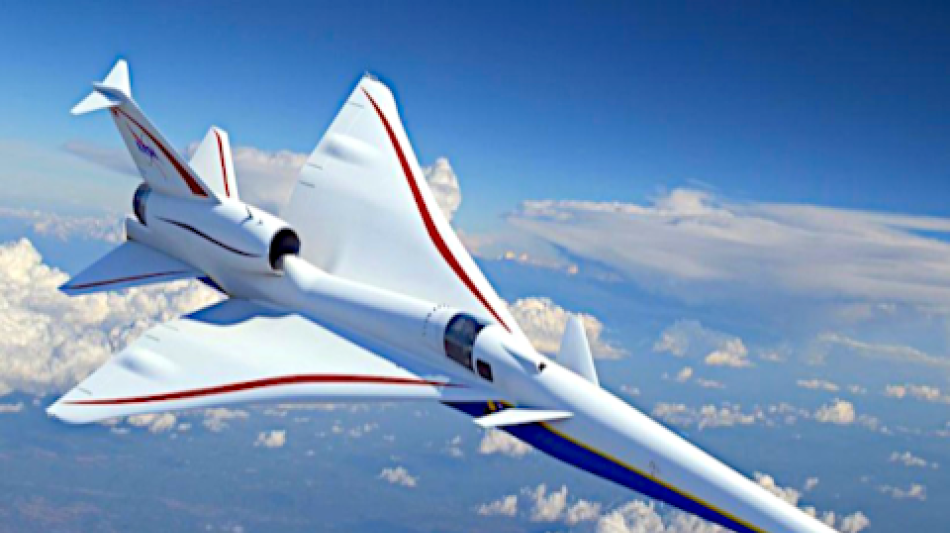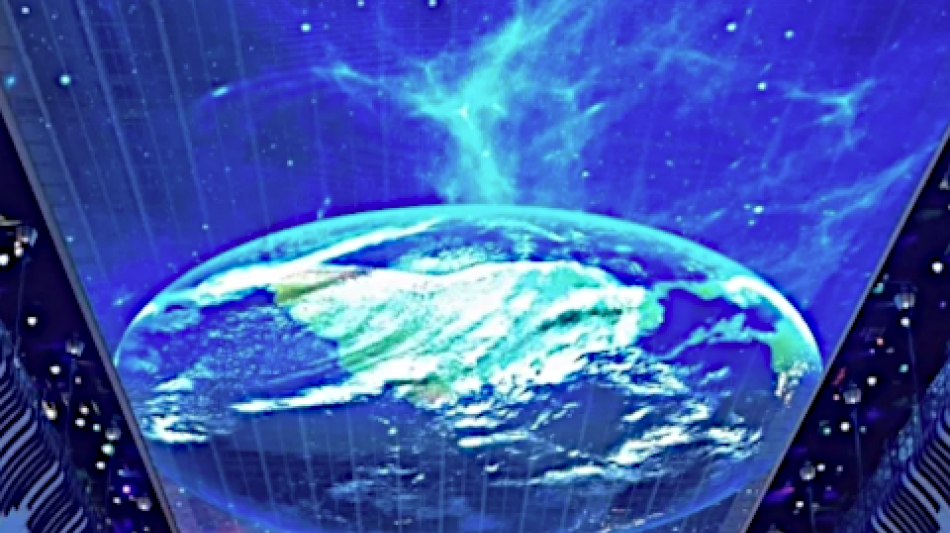-
 US Supreme Court pauses deportation of Venezuelans from Texas
US Supreme Court pauses deportation of Venezuelans from Texas
-
Pakistan foreign minister arrives in Kabul as Afghan deportations rise

-
 Heat and Grizzlies take final spots in the NBA playoffs
Heat and Grizzlies take final spots in the NBA playoffs
-
Iran, US to hold second round of high-stakes nuclear talks in Rome

-
 Humanoid robots stride into the future with world's first half-marathon
Humanoid robots stride into the future with world's first half-marathon
-
Migrant's expulsion puts Washington Salvadorans on edge

-
 Plan for expanded Muslim community triggers hope, fear in Texas
Plan for expanded Muslim community triggers hope, fear in Texas
-
Pakistan foreign minister due in Kabul as deportations rise

-
 White House touts Covid-19 'lab leak' theory on revamped site
White House touts Covid-19 'lab leak' theory on revamped site
-
Dodgers star Ohtani skips trip to Texas to await birth of first child

-
 SFWJ / Medcana Announces Strategic Expansion Into Australia With Acquisition of Cannabis Import and Distribution Licenses
SFWJ / Medcana Announces Strategic Expansion Into Australia With Acquisition of Cannabis Import and Distribution Licenses
-
US senator says El Salvador staged 'margarita' photo op

-
 Ford 'adjusts' some exports to China due to tariffs
Ford 'adjusts' some exports to China due to tariffs
-
Thomas maintains two-shot lead at RBC Heritage

-
 US to withdraw some 1,000 troops from Syria
US to withdraw some 1,000 troops from Syria
-
Four killed after spring storms wreak havoc in the Alps

-
 Spurs' Popovich reportedly home and well after 'medical incident'
Spurs' Popovich reportedly home and well after 'medical incident'
-
Trump goes to war with the Fed

-
 Celtics chase second straight NBA title in playoff field led by Thunder, Cavs
Celtics chase second straight NBA title in playoff field led by Thunder, Cavs
-
White House site blames China for Covid-19 'lab leak'

-
 Norris edges Piastri as McLaren top Jeddah practice
Norris edges Piastri as McLaren top Jeddah practice
-
Trump warns US could ditch Ukraine talks if no progress

-
 Judge denies Sean 'Diddy' Combs push to delay trial
Judge denies Sean 'Diddy' Combs push to delay trial
-
80 killed in deadliest US attack on Yemen, Huthis say

-
 Lebanon says two killed in Israeli strikes in south
Lebanon says two killed in Israeli strikes in south
-
Trump says US will soon 'take a pass' if no Ukraine deal

-
 F1 success is 'like cooking' - Ferrari head chef Vasseur
F1 success is 'like cooking' - Ferrari head chef Vasseur
-
Cycling mulls slowing bikes to make road racing safer

-
 Macron invites foreign researchers to 'choose France'
Macron invites foreign researchers to 'choose France'
-
Klopp 'happy' in new job despite Real Madrid rumours: agent

-
 Alcaraz into Barcelona semis as defending champion Ruud exits
Alcaraz into Barcelona semis as defending champion Ruud exits
-
Vance meets Italy's Meloni before Easter at the Vatican

-
 Evenepoel returns with victory in Brabantse Pijl
Evenepoel returns with victory in Brabantse Pijl
-
Maresca confident he will survive Chelsea slump

-
 Mob beats to death man from persecuted Pakistan minority
Mob beats to death man from persecuted Pakistan minority
-
Lebanon says one killed in Israeli strike near Sidon

-
 Arsenal's Havertz could return for Champions League final
Arsenal's Havertz could return for Champions League final
-
US officials split on Ukraine truce prospects

-
 Client brain-dead after Paris cryotherapy session goes wrong
Client brain-dead after Paris cryotherapy session goes wrong
-
Flick demands answers from La Liga for 'joke' schedule

-
 'Maddest game' sums up Man Utd career for Maguire
'Maddest game' sums up Man Utd career for Maguire
-
Trial opens for students, journalists over Istanbul protests

-
 Gaza rescuers say Israeli strikes kill 24 after Hamas rejects truce proposal
Gaza rescuers say Israeli strikes kill 24 after Hamas rejects truce proposal
-
'Really stuck': Ukraine's EU accession drive stumbles

-
 'Not the time to discuss future', says Alonso amid Real Madrid links
'Not the time to discuss future', says Alonso amid Real Madrid links
-
74 killed in deadliest US attack on Yemen, Huthis say

-
 Southgate's ex-assistant Holland fired by Japan's Yokohama
Southgate's ex-assistant Holland fired by Japan's Yokohama
-
Vance meets Meloni in Rome before Easter at the Vatican

-
 Ryan Gosling to star in new 'Star Wars' film
Ryan Gosling to star in new 'Star Wars' film
-
Hamas calls for pressure to end Israel's aid block on Gaza

Taiwan: Is the "Silicon Shield" collapsing?
Taiwan, long regarded as a linchpin in the global technology supply chain, faces an uncertain future as its vaunted “silicon shield”—the notion that its dominance in semiconductor production deters aggression—comes under strain. The island’s strategic importance, driven by the Taiwan Semiconductor Manufacturing Company (TSMC), which produces over 90% of the world’s most advanced microchips, has historically offered a degree of protection against threats, notably from China. However, recent policies from United States President Donald Trump are raising fears that this shield may be crumbling, leaving Taiwan vulnerable at a time of escalating geopolitical tension.
The Silicon Shield: A Fragile Bastion
The concept of the silicon shield posits that Taiwan’s indispensable role in supplying cutting-edge semiconductors to the world—powering everything from smartphones to artificial intelligence—acts as a deterrent against military action, particularly from Beijing, which claims the island as part of its territory. The theory rests on the catastrophic economic fallout that would follow any disruption to TSMC’s operations, a scenario that would cripple global supply chains and affect major economies, including the U.S. and China itself. For years, this economic leverage has been Taiwan’s unspoken safeguard, complementing its military defences and U.S. support under the Taiwan Relations Act.
Yet, this shield is not impervious. China’s growing military assertiveness—demonstrated by large-scale drills encircling Taiwan in October 2024—and its advancements in domestic chip production have already cast doubt on the shield’s durability. Now, Trump’s aggressive economic strategy is adding a new layer of jeopardy, threatening to erode Taiwan’s technological edge and, with it, the island’s strategic security.
Trump’s Tariff Threat:
Since reclaiming the presidency, Trump has doubled down on his “America First” agenda, targeting Taiwan’s semiconductor industry with a bold and controversial plan. In a speech to Republicans on 27 January 2025, he proposed tariffs of up to 100% on imported microchips, arguing that Taiwan had “stolen” America’s chip industry and that such measures would force production back to U.S. soil. “They won’t want to pay a 25%, 50%, or even 100% tax,” Trump declared, framing the policy as a means to revitalise American manufacturing.
This stance marks a sharp departure from his first term, during which he bolstered Taiwan through arms sales and diplomatic engagement, including a historic call with then-President Tsai Ing-wen in 2016. Now, his rhetoric portrays Taiwan less as an ally and more as an economic rival. His administration has also questioned the $6.6 billion in grants awarded to TSMC under the 2022 CHIPS and Science Act for a factory in Arizona, with Trump dismissing it as a “ridiculous programme.” Such moves signal a transactional approach, echoing his earlier demands that Taiwan “pay” for U.S. defence support.
Economic and Strategic Fallout:
The implications of Trump’s plan are profound. For Taiwan, tariffs would not only raise costs for U.S. importers—likely passed on to consumers—but also jeopardise TSMC’s investments in American facilities, which now total $65 billion. Taiwanese Premier Cho Jung-tai has vowed to maintain the island’s tech leadership, announcing on 28 January 2025 that the government would explore “cooperative plans and assistance programmes” to shield its industry. Economy Minister Kuo Jyh-huei, meanwhile, downplayed the immediate impact, citing Taiwan’s technological superiority, though analysts warn that prolonged pressure could force TSMC to shift more production overseas, diluting Taiwan’s economic leverage.
Strategically, this shift could weaken the silicon shield’s second layer: the reliance of third parties, particularly the U.S., on Taiwanese chips. If Trump succeeds in relocating significant semiconductor production, Taiwan’s role as a global chokepoint diminishes, potentially reducing the incentive for Washington to defend the island. This fear is compounded by Trump’s ambiguous stance on Taiwan’s defence, having dodged questions in 2024 about whether he would intervene if China attacked, instead noting the island’s distance—9,500 miles from the U.S. versus 68 miles from China.
China’s Opportunistic Gaze:
Beijing, which has never renounced the use of force to achieve unification, may see an opening. While China relies heavily on TSMC—despite progress with firms like SMIC—some analysts argue that Taiwan’s chip prowess is less a shield and more a prize, incentivising control over the industry. Trump’s policies could accelerate this calculus. Posts on X suggest a growing sentiment that his approach might “incentivise Taiwan to capitulate” by undermining its economic defences, though such views remain speculative.
Taiwanese officials remain defiant. The foreign ministry, responding to Trump’s tariff threats, reiterated on 28 January 2025 that the Republic of China is a “sovereign and independent country,” dismissing any distortion of its status. President Lai Ching-te, who has stressed the “solid as a rock” U.S.-Taiwan partnership, faces the challenge of bolstering defences—currently budgeted at 2.45% of GDP—while navigating this economic onslaught.
A Shield at Risk:
Taiwan’s silicon shield has never been a guarantee, but Trump’s plan introduces unprecedented pressure. By targeting the island’s economic lifeline, he risks not only disrupting global tech supply chains but also weakening a key deterrent against Chinese aggression. For Taipei, the task is clear yet daunting: reinforce its technological edge, deepen international ties, and prepare for a world where its shield may no longer hold. As the U.S. pivots inward, Taiwan stands at a crossroads, its fate hanging in the balance between economic might and geopolitical reality.

EU: Von der Leyen withdraws controversial pesticide law

EU: Prison for "paedophilia manuals" and child abuse forgeries

EU: 90% cut of all greenhouse gas emissions by 2040?

How is climate change spreading disease?

Business: Is it important to speak multiple languages?

Trump's return could leave Europe 'on its own'

NASA and Lockheed partner present X-59 Quesst

China: Gigantic LED in a shopping centre

Did you know everything about panda bears?

Ukraine has a future as a glorious heroic state!

To learn: Chinese school bought an Airbus A320



